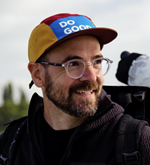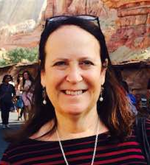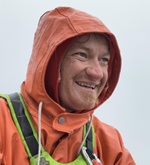ISRS Plenary Speakers
ISRS Organizing Committee is excited to bring you our three invited plenary speakers:

Jono Tonkin
Beyond stationarity: river futures in an era of extremes
Jonathan Tonkin is an Associate Professor and Rutherford Discovery Fellow at the University of Canterbury in New Zealand. He is an ecologist and biodiversity scientist focused on tackling global challenges at the nexus between biodiversity and climate change, with a particular emphasis on ecological forecasting and understanding drivers of change in rivers. He has won a number of awards, including the NZ Prime Minister’s MacDiarmid Emerging Scientist Prize, the NZ Freshwater Sciences Society and University of Canterbury Early Career Researcher Awards, and a Rutherford Discovery Fellowship.
Jono’s research has appeared in leading multidisciplinary (Nature, Science) and ecological (Nature Ecology & Evolution, Trends in Ecology & Evolution, Frontiers in Ecology & the Environment) journals. He leads the Tonkin Lab, a diverse group of postdocs and postgraduate students, and is a Principal Investigator in Te Pūnaha Matatini, a New Zealand Centre of Research Excellence in Complex Systems. He also writes the newsletter Predirections.

Felicia Marcus
River Restoration and Protection: Is the Glass Half-Full or is it Half-Empty? Can we rise to the occasion?
Felicia Marcus is currently the Landreth Visiting Fellow at Stanford University’s Water in the West Program after a long career in the governmental, NGO, and private sectors working on a wide range of environmental issues. Felicia has been Chair of the California State Water Resources Control Board, Regional Administrator of the U.S. EPA Region IX, head of the City of Los Angeles’ Department of Public Works, Western Director at NRDC, EVP/COO of the Trust for Public Land, and a public interest and private sector attorney. She is an Elected Fellow of the National Academy of Public Administration and the American College of Environmental Lawyers and serves on the Board of the Western Electricity Coordinating Council. She is currently working on issues including water recycling, nature-based solutions, protecting and restoring instream flows, water rights, international climate adaptation, and water justice. She is known for her work negotiating complex multi-party agreements including the Bay-Delta Accord, US-Mexico-Tribal agreements, the Grand Canyon Visibility Transport Commission, and legislation such as the Sustainable Groundwater Management Act and Delta Reform Act of 2009.

Brian Chaffin
Social-ecological river restoration: converging currents of science, governance, and resilience thinking
Brian is a professor of water policy in the W.A. Franke College of Forestry & Conservation at the University of Montana and the Executive Director of a regional watershed nonprofit, the Clark Fork Coalition (CFC). His teaching and research projects focus on riverine social-ecological systems through which he explores the challenges of managing water supplies in a changing climate and amid shifting social values. Prior to university service, Brian worked as a wilderness river guide, a river ranger for the U.S. Forest Service, and a research fellow at the U.S. EPA. In 2010, Brian and his wife Jenni founded a nonprofit organization dedicated to supporting the health and strength of professional outdoor guiding communities with a focus on river guide communities of the American West. Through that work, Brian found a passion for science-based advocacy in the nonprofit sector, which led him to lead CFC in 2024. CFC has worked to protect and restore the 56M hectare Clark Fork River watershed of western Montana for the past 40 years; the organization is responsible for large-scale dam removal, significant reversal of agricultural dewatering, and permanent river protections in local and state law. Since taking the helm at CFC, Brian has leveraged his experience to support Clark Fork River communities in pursuit of win-win projects that both protect water quality and support basin livelihoods, approaching river restoration as a tool to build social-ecological resilience. Brian is a water resources geographer by training and holds a Ph.D. from Oregon State University and a M.S. and B.S. from the University of Idaho. When not at an office, Brian can be found floating rivers from the arctic to the mid-latitudes.